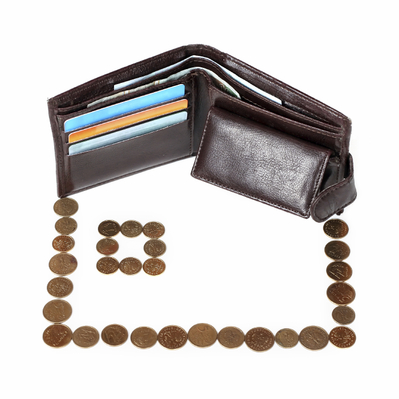Whether you’re married or are a couple who own a home together and are now facing a separation, dissolving a partnership is never easy. Even if both parties are amicable and agree to the break up, it is a very emotional time. You may just be thinking about who gets to keep the house…or you just may want out and not even care about the property. Your mortgage and credit history is probably the last thing on your mind…however, you may want to consider protecting the credit that you’ve worked hard for.
Do contact an attorney who specializes in divorce. Even if you just contemplating a divorce and you’re not certain you will file. It’s important to find out the facts and get legal advice from a professional.
Obtain your current credit report. You can get a free copy from www.annualcreditreport.com. Review it to make sure that your debts are in order and that the other party is not using your credit for “retail therapy”. Identify which accounts you may want to close if they have your name on them. The credit company may be all too happy to issue your own card in your own name. Having an ex-partner with your credit, even if you’re getting along now, can wreck havoc on your scores. If your name remains on an account they have, even if they pay the debts on time, if the balances exceed 30% of the limit on a credit card, your credit score will suffer too.
Consider closing any joint accounts immediately that are not in use and removing your name from any accounts that you are a signer on.
Secured accounts, such as loans attached to vehicles and mortgages must be dealt with too. You might consider selling the items that have secured loans in order to remove your name and liability from the debt. Otherwise, you should consider refinancing the loan. Plus, the payments may be factored as your debt when qualifying for new loans, such as a mortgage.
Should your ex-partner decide they want to keep the house, require that they refinance the mortgage so that your name can be removed from the debt. Deeding the property from one person to another does not remove the liability of the mortgage. Even if your partner is a really nice person right now, if they lose their job 5 or 10 years from now, and your name is still on the mortgage, it will dramatically impact your credit if the bills are not being paid.
If your ex-partner does not qualify for a refinance of the property, then how can you expect them to make the payment? It’s too risky.
One of my friends went through a divorce. Her ex really wanted the house. He did not qualify for the mortgage on his income alone and wasn’t thrilled when she insisted that he needed to refinance to take her name off of the mortgage. Although it was a tough decision, they sold the house and split the proceeds. He remarried and bought another house with his new wife and in just a few years, filed bankruptcy and the home was foreclosed. Imagine what would have happened to her credit if she would have accepted the cash offer of her share of equity without refinancing the mortgage out of her name? She would have been responsible and included in the foreclosure. Her credit would have been trashed and it would be extremely difficult for her to buy a home.
Should you divorce, your divorce decree will not override your agreements with creditors. It’s important to be proactive and to always take steps to protect your credit. Although credit scores are reflective and not permanent, bankruptcy and (especially) foreclosure will impact your credit scores and interest rates for years.
Remember, take precautions with your mortgage, credit history and consult with an attorney if you are considering a possible divorce.












Recent Comments